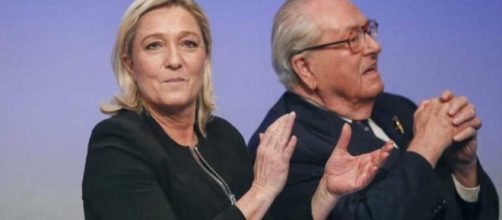In the run-up to the second round of the French presidential elections, Marine Le Pen’s National Front party was rocked by scandal when its acting head, Jean-Francois Jalkh, was forced to resign after making remarks that doubted the Nazi Holocaust. Then statement came on the heels of Le Pen suggesting that France bore no responsibility for the roundup of French Jews during World War II. The scandal undercut’s Le Pen’s effort to attract French Jews worried about the upsurge of Islamic terrorism inside France.
A 2000 interview with Jalkh cropped up and was reported in the French media in which he suggested the Zyklon-B, the gas that the Nazis used to murder millions of Jews and others they thought to be undesirable, could not have been used as a weapon of mass extermination.
He has also drawn a distinction between “crazy” and “hateful” Holocaust deniers and those he finds to be “more sensible” such as Robert Faurisson, a Franco-British academic who wrote a number of articles claiming that the extermination of European Jews never happened and even argued that “The Diary of Anne Frank” was a forgery. Jalkh claims to have no memory of the 2000 remarks.
Marine Le Pen has been trying to remake the National Front from an extremist, fringe group with racist and Anti-Semitic tendencies into a mainstream party based on French nationalism. However, as the Jalkh Affair demonstrates, some members of Le Pen’s party have not gotten with the program. Le Pen has enjoyed an upsurge of political fortune, but thus far it has been insufficient to raise her to success at the polls.
French voters are angry to be sure, but not just that angry.
The upshot is that France is faced with the unappetizing choice between a woman whose political party carries the stench of fascism and a technocratic, colorless, but well-meaning independent named Emmanuel Macron, Macron is polling 20 points ahead of Le Pen and, barring a surprise, is a heavy favorite to win the May 7 contest.
Whatever the outcome of the election, neither candidate seems to have grasped what needs to happen to fix France’s chronic economic problems. Double-digit unemployment as far as the eye can see and a bloated social welfare state remains intractable problems. Add to that the threat of terrorism and ethnic strife with a minority of unassimilated Muslims, and the next president of the French Republic is going to have his or her hands filled. Neither Le Pen’s program of protectionism or Macron’s “third way” encouragement of high-tech are likely to address this problem.

